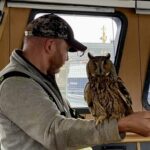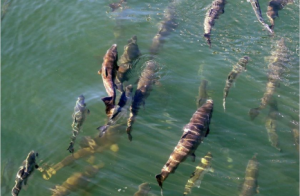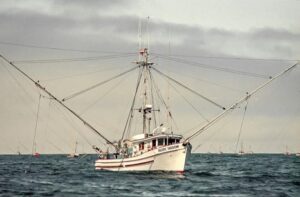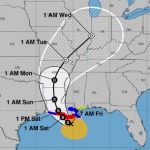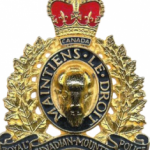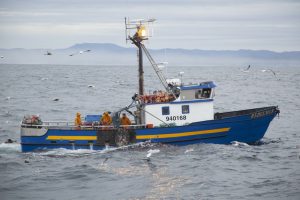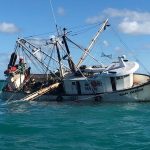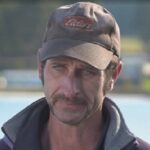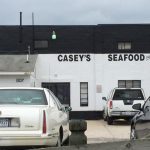Tag Archives: North Sea
EU, Britain to face off in post-Brexit fishing battle case
 A tiny silver fish which is an important food source in the North Sea will take centre stage Tuesday as the European Union and Britain square off over post-Brexit fishing rights. The bitter arbitration case over sandeels is seen as a bellwether for other potential litigation between London and Brussels in a perennial hot-bed industry, experts said. Tuesday’s clash at the Hague-based Permanent Court for Arbitration also marks the first courtroom trade battle between the 27-member trading bloc and Britain since it left the EU in 2020. more, >>CLICK TO READ<< 06:08
A tiny silver fish which is an important food source in the North Sea will take centre stage Tuesday as the European Union and Britain square off over post-Brexit fishing rights. The bitter arbitration case over sandeels is seen as a bellwether for other potential litigation between London and Brussels in a perennial hot-bed industry, experts said. Tuesday’s clash at the Hague-based Permanent Court for Arbitration also marks the first courtroom trade battle between the 27-member trading bloc and Britain since it left the EU in 2020. more, >>CLICK TO READ<< 06:08
‘Hollow words won’t protect Scottish fishing, industry chief warns
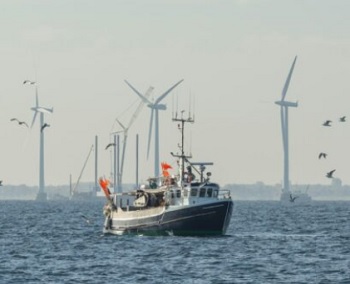 Offshore wind farms in the North Sea and the prime minister’s ambitions to “reset” relations between the UK and European Union are major dangers for the sector, they say. And they want politicians in Edinburgh, London and further afield to “radically rethink” their approach to the sector. Scottish Fishermen’s Federation (SFF) chief executive Elspeth Macdonald outlined these concerns in her new year message to ministers and civil servants “across the UK and beyond”. She said a widespread sense of crisis had spawned a bout of “initiative-itis” by the Scottish and UK governments. more, >>CLICK TO READ<< 09:49
Offshore wind farms in the North Sea and the prime minister’s ambitions to “reset” relations between the UK and European Union are major dangers for the sector, they say. And they want politicians in Edinburgh, London and further afield to “radically rethink” their approach to the sector. Scottish Fishermen’s Federation (SFF) chief executive Elspeth Macdonald outlined these concerns in her new year message to ministers and civil servants “across the UK and beyond”. She said a widespread sense of crisis had spawned a bout of “initiative-itis” by the Scottish and UK governments. more, >>CLICK TO READ<< 09:49
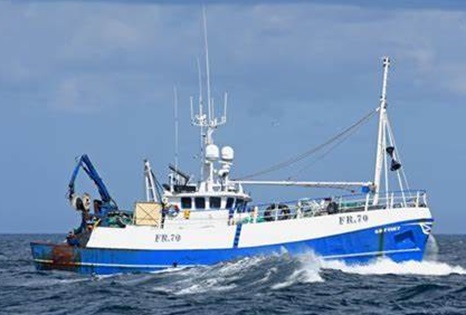
Crew saved from North Sea as Fraserburgh trawler sinks in SOS emergency
Six crew members have been saved from a sinking Fraserburgh-registered fishing boat. An urgent plea was issued for vessels to assist in the search and rescue operation of the Odyssey FR70 trawler. The beacon was answered by a nearby boat, which headed to the Odyssey’s location. The crew were then transferred to the other vessel via life raft. more, >>CLICK TO READ<< 10:22
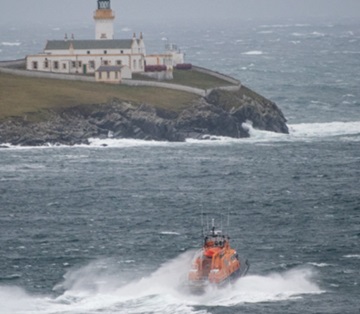
Lifeboat crew return after 18-hour call
Stephen Manson described the seas as “brutal” after the lifeboat was called out to aid the Danish trawler Westbank and her three-man crew. The 17m fishing vessel had broken down, and the RNLI crew launched into difficult conditions in the North Sea, heading into the south-easterly gale which has brought chaos across Scotland. “It was brutal, there were big seas, a lot of rolling and things going walkabout on the boat,” Mr Manson said. “We handled it well and it all ran fairly smoothly, but weather was very much a challenge, especially getting there.” >>click to read<< 10:58

Dutch beam trawlers smuggle cocaine in Danish waters
Poor and non-existent controls in ports such as Hanstholm and Thyborøn give international drug cartels good opportunities to smuggle in Danish waters. At the West Jutland ports, there are stories that one of the locals has been threatened with death in Thyborøn, and that at least three others have been beaten down by the so-called “pirates” in Hanstholm. No one wants to get their name out because they fear reprisals. Someone knows little. Others almost nothing. A Dutch fisherman has agreed to meet, despite the fact that, by his own admission, he risks his life. As we sit down, the fisherman makes it clear that he will in no way be recognizable: “I have to be 100 percent sure. Otherwise, I’m dead. They are ‘crazy’. He emphasizes that not all beam trawlers smuggle drugs, but several of them. The smuggling takes place when the beam trawler far out in the North Sea, where no one sees them, meets a large container ship, typically with fruit from South America. Photos, Videos, >click to read< 16:20
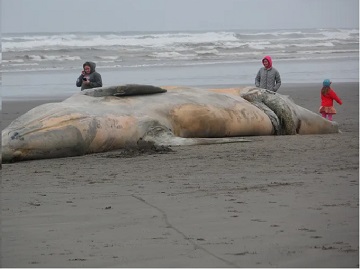
Saving The Whales. The Fight Against Offshore Wind Farms.
As nine European countries sign a declaration to turn the North Sea into a huge industrial wind farm zone, they have effectively committed to wiping out wildlife on a monstrous scale; a mass, indiscriminate, destruction of life forms that have survived for millennia. A shocking opinion? Yes, but also a real possibility – and one thing is very certain, this is nothing to do with ‘green’ energy, ‘net zero’ or climate change. This is everything to do with greed and folly, a lethal combination. Whale Deaths And Wind Farms – An Obvious Connection >click to read< 08:45
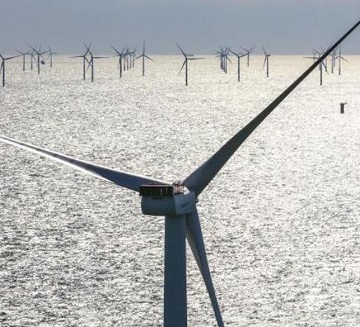
Planned Tenfold North Sea Windfarm Expansion by 2050
The fishing industry is alarmed by drastic plans to massively increase windfarm capacity in the North Sea. Fishing industry leaders already fighting to retain fishing grounds for their members are deeply alarmed by the plans to increase of offshore wind power by ten times current levels by 2050, to develop ‘energy islands’ of interconnected sites and carbon capture projects. Mike Cohen, chief executive of the National Federation of Fishermen’s Organisations (NFFO), said the development would be on the agenda for discussion at the next meeting of the international fishermen’s movement, the Northern Fishing Alliance (NFA), which represents fishermen from six countries fishing in the North Sea. >click to read< 12:38
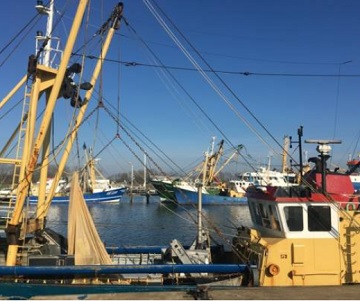
Shrimp industry is under threat, fishermen tell the king
A group of North Sea fishermen have urged king Willem-Alexander to step in and help the Dutch fishing industry which they say is being threatened by government and EU policy. In total, 400 skippers and fishing industry companies signed the letter as well as 45 Belgian and German trawler operators who fish in Dutch waters. The fishermen are particularly concerned about new emissions targets for trawlers operating in Natura 2000 areas. The new motors which trawlers need to meet the targets by October 1 cost some €100,000 and only half of that can be covered by government subsidies, they say. >click to read< 12:47
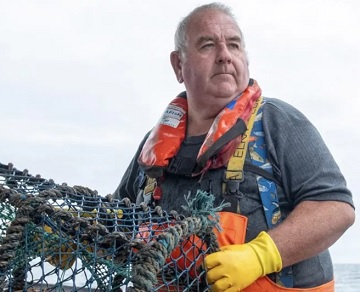
From the heart of a Hartlepool fisher – to EFRA
Dear EFRA COMMITTEE, MMO, local MPs, councillors and interested parties. Please log the ecosystem rock pool make up life change, with the many other die-offs that you haven’t given me feedback on, since the freeport dredge started in 1 September 2021, and the 145.000 tonnes of capital dredge from the toxic Seaton Channel, that you have allowed to be removed, irrespective of its chemical makeup, and dumped six miles out, in the last two weeks. I eagerly await the MMO answers, please copy the EFRA Committee in, and the feedback [as to] why these creatures are all that’s left in the ponds. >click to read< 07:46
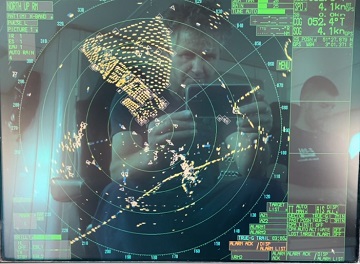
A Great Wall – In the Sea
Fishermen are being excluded from the debate relating to windfarm development in the North Sea, according to Job Schot of Eurocutter Job Senior Z-201, who has been prominent in questioning the rapid changes taking place. ‘I’m opposed to windfarms,‘ he said. ‘I’m a fisherman and this has a huge effect on how we make our living. But we have to accept that this isn’t going away.’ Since the first wind turbines appeared in the North Sea a couple of decades back, the rate of change has increased, and today fishing grounds are disappearing at breakneck speed, with little attention paid to those who question this. Photos, >click to read< 18:20
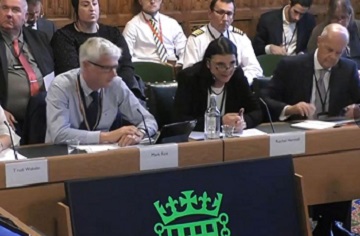
Experts quizzed over freeport, dredging and algal blooms as crab deaths on coast investigated
The deaths of thousands of sea creatures washed up on Teesside’s beaches are to be investigated in the House of Commons on Tuesday. Teesport operator PD Ports, the Environment Agency, a Whitby fishing association and academics will give evidence to MPs about the mass sea deaths. The Environment, Food and Rural Affairs select committee will hear from witnesses about the crustacean deaths after committee chair Conservative Sir Robert Goodwill, MP for Scarborough and Whitby, branded the situation “disturbing”. A Defra investigation earlier this year concluded the cause of the crab deaths to be a naturally occurring algal bloom but campaigners believe dredging has unearthed historical toxins – including a chemical called pyridine – which has caused the deaths. >click to read< 12:15
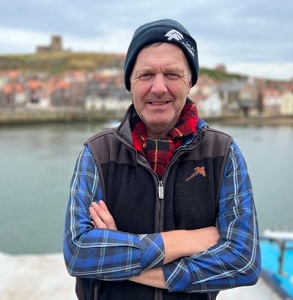
BBC documentary examines mass crab die off on Teesside coast and what has happened since
A TV documentary examining the impact of the mass crab and lobster die off on the Teesside coast is set to air. We Are England: Trouble at Sea looks at the events of last October and what has happened since. In it, film makers speak to fishermen, conservationists, the Tees port authority PD Ports and scientists to document the effects of the worrying occurrence, the subsequent investigation and the theories on its cause that have been an ongoing source of dispute. Teessiders will know huge piles of crabs, lobsters and shellfish began to wash up on beaches around the Redcar and Markse areas as well as Hartlepool a year ago before washing down the coast as far as Whitby. They were seen in piles that were waist deep in some places and most were dead or dying.>click to read< 21:32
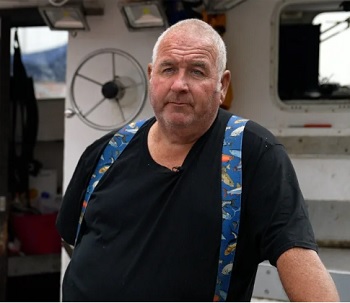
Impact of mass crab die-off ‘not as severe as feared’ but report criticised by fisherman
A monitoring report into the state of shellfish stocks along the Teesside coast following the mass crab and lobster die off has concluded the impact ‘was not as severe as originally feared.’ But a fisherman who works off the Hartlepool coast has hit out at the findings and claims it does not paint a true picture. However, Stan Rennie, who fishes from Hartlepool, has criticised the report. He says it includes the catches of all of the visiting super crabbers which work thousands of pots, and he says, it doesn’t take into account the fact that fishermen are going further afield to get out of the die-off areas. >click to read< 14:48
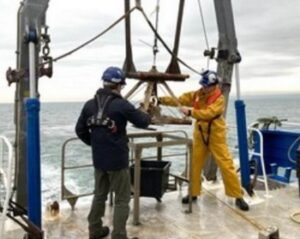
Deaths, accusations and a search for truth: The Teesside seaside die-off and where we are now
It is an issue that has caused a huge amount of concern right the way across Teesside and down into North Yorkshire. And it is simply not going away. Last October, residents living in the Marske area began to notice huge piles of dead and dying crabs, lobsters and shellfish washing up on the beach between the seaside town and neighbouring Saltburn – in places, the piles were waist deep. Fishing livelihoods have been decimated, protests have been mounted and the campaign for a re-investigation continues. Here’s what has happened so far as the issue continues to prove contentious. >click to read< 07:58
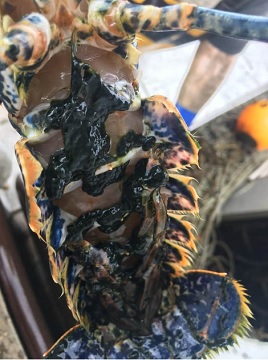
Biologist’s concern as lobster eggs ‘turn to slime’ off Yorkshire coast
Joe Redfern, manager of Whitby Lobster Hatchery, said stress may have caused the lobsters to release eggs prematurely but “but nobody seems to really have a definite answer”. “It’s not something I’ve seen before. It’s not like anything any of the fishermen have seen before, which is concerning,” he said. Samples have been sent to the Centre for Environment, Fisheries and Aquaculture for analysis, after the eggs were found in Whitby and Hartlepool. It comes almost a year after dead lobsters and crabs began washing ashore in Yorkshire and the North East, but Mr Redfern said he does not want to jump to conclusions and claim there is any link to the mass die off until the analysis has been completed. >click to read< 10:27
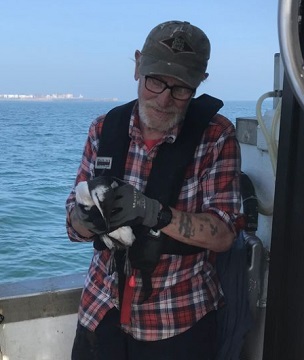
Yorkshire fisherman says his livelihood is being ‘devastated’ by mass deaths
James Cole, Chair of Whitby Commercial Fishing Association, has been talking about the serious impact the crisis has had on the fishing industry. He said: “It has had a devastating effect on the turnover of shellfish from Whitby and Hartlepool as well.” One particular feature of the crisis has been the lack of brown crabs which have been “absolutely devastated” in number. Velvet Crabs, which Mr Cole says are a food source for many animals which live close to the shore have been “more or less wiped out on the shore grounds”. The government has said the mass deaths were caused by a “naturally occurring harmful algal bloom”,,, >click to read< 10:35
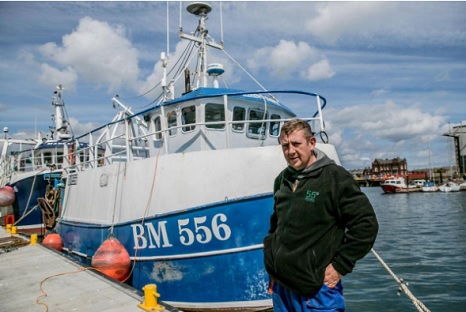
Fishermen launch legal action over North East crustation deaths
Fishermen along the North East coast have told of taking up new jobs amid a fishing crisis which has threatened their livelihoods and seen dead crustaceans wash up along the shoreline. Paul Graves, a lifelong fisherman off the Teesside and North Yorkshire coast, has taken up extra jobs over the summer to earn a living while his fishing boat is tied up in Hartlepool Mr Graves, like many other fishermen in the area, have grown frustrated by a marine life crisis which has seen hundreds of dead crustaceans wash ashore along the coast. For Paul, he’s contemplated selling his boat, owned by his family for years, due to the uncertain future. “I tied the boat up and went and did seven weeks work for a cable company,” he said. photos, >click to read< 15:49
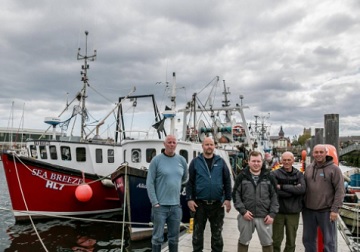
‘On its knees’ – Public meeting to look at how to support Hartlepool’s fishing industry
Councillors unanimously backed the move at the latest Hartlepool full council meeting, pledging to do all they can to support the sector after the mass deaths of crabs and lobsters in the area. The motion was raised by Labour’s Cllr Rachel Creevy, who highlighted how the region’s fishing industry has been decimated since the issue first occurred in autumn 2021. A Hartlepool fisherman invited to speak at the meeting said the industry is “part of their heritage” and their “lifetime’s work”. But they are now “desperate” with the “ecosystem wiped out”. >click to read< 10:55
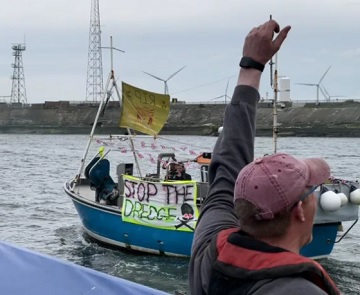
Government accused of ‘cover up’ over Teesside mass crab deaths
But Defra has insisted joint investigations into the deaths were thorough. Unrest, debate and protests over huge piles of dead crustaceans on Teesside’s coastline have rumbled on since problems first started last autumn at Seaton Carew, South Gare, Redcar, Marske and Saltburn. An algal bloom was deemed to be the likely culprit by a Defra-led study. But this was countered by an independent report by Tim Deere-Jones after he was commissioned by those concerned in the fishing industry. High levels of a chemical pyridine were noted by Mr Deere-Jones’s report. Mr Deere-Jones’ report also said algal blooms did not occur naturally in our coastal waters in October because the temperatures were too low. >click to read< 10:35
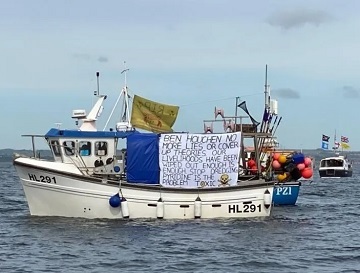
Troubled waters: the forces behind the death of the Tees
The Tees Estuary is dying. Its demise the result of widespread contamination on the one hand, and a wilful mishandling of information on the other. There was mass crustacean die-off in September/October 2021, and there has been a resurgence of this in recent weeks. We have also received numerous reports of deaths of seal pups as well as porpoise. Those seal pups that have survived are seriously underweight. Dead crab and lobster have been washing up on beaches again. Razor clams that inhabit the shallow waters of estuary beaches are also reported to be affected. And the official response to these sobering facts currently appears to be a mixture of indifference, belligerence and denial. >click to read< 08:11

Fishermen from across North East and Yorkshire in boat protest over mass shellfish deaths
Fishermen have held a protest on Teesside over the ongoing deaths of crabs and lobsters which they say is decimating their industry. Government scientists say natural algae in the water is responsible, but protestors want proof that recent dredging in the North Sea has not also had an impact in creating what they are calling a “dead zone”. Thirty fishing boats from Whitby, Redcar and Hartlepool sailed to South Gare to meet protestors on land to demonstrate about the continuing crisis. >click to read< 08:59
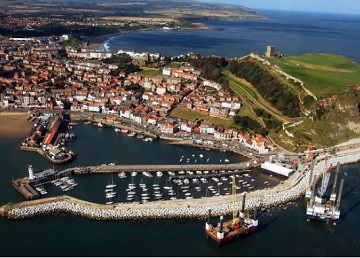
Scarborough crab boat owner backs call for gas to be extracted from North Sea
A Scarborough crab boat owner says gas in two fields off the North Yorkshire coast needs to be extracted to prevent the country being “dependent on everyone else”. The Resolution gas discovery was an early North Sea discovery made by Total in 1966 and extracted from North Sea of The Well Dressed Crab Company, said he could remember seeing its rig off the coast in the 1980s. Mr Roberts said: “It’s not only about fishing, the population is an interested party too. “I’m part of UK PLC and I want to know where gas is coming from. “There will be people opposed to it but they will be the same people who expect to go home and turn on the gas boilers and expect to put a pan of stew on the stove.” >click to read< 08:05
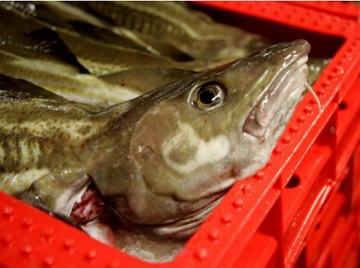
Fishermen join forces to tackle North Sea cod quota ‘mismatch’
Skippers and other industry representatives from Shetland, Scotland, Denmark, Norway and England met in Copenhagen to discuss a “quota mismatch” they are facing at sea, Shetland Fishermen’s Association said today. Vessels are encountering more cod than current official assessments, the industry group said, adding the recent talks in Copenhagen “painted a unanimous picture” of an abundant stock stretching across the whole North Sea and beyond. But quota for the species, a staple of fish suppers in many parts of the UK has been slashed by 70% in just three years. According to the SFA, this “poor science” leads to quota recommendations that bear no resemblance to the volume of fish in the sea. >click to read< 12:46
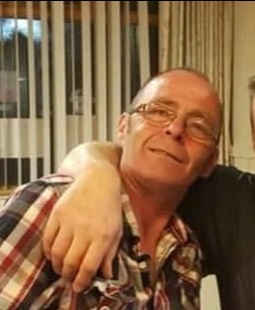
Peterhead fisherman who died after trawler Njord capsizes has been identified
Ronald McKinnon, originally from Peterhead, was one of three crew members airlifted to Haukeland University Hospital in Bergen after inhaling fumes. Five more of the crew were then rescued by an offshore vessel. The Norwegian Joint Rescue Co-ordination Centre scrambled a helicopter after the alarm was raised at 1:39pm on Sunday. The trawler was about 100 nautical miles west of Stavanger when it got into difficulty. Now tributes have been paid to Ronald on social media, with the fisherman being hailed as a “true friend”. >click to read<, >and click here<15:18
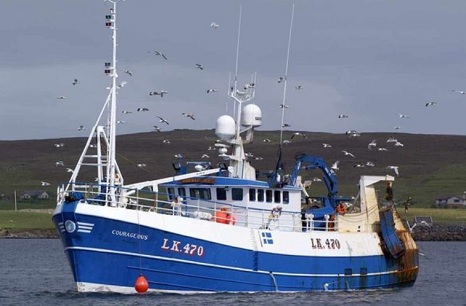
Scottish fishing trawler Njord capsizes off Norway leaving one dead
One person has died after a Scottish fishing vessel with eight people on board capsized off Norway. The Norwegian Joint Rescue Co-ordination Centre (NJRCC) launched a rescue operation after the alarm was raised on Sunday. Rescuers found the eight crew standing on the keel of the capsized vessel Njord which got into difficulty about 100 miles west of Stavanger in the North Sea. Three people were winched into a search and rescue helicopter and were flown to Haukeland University Hospital in Bergen where one of them subsequently died. >click to read<,– and >click here to read< 07:37
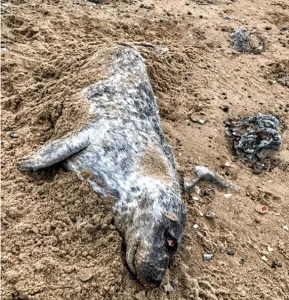
Dead seals turn up on North East beaches as dead crab mystery continues
It has been almost four months since reports first emerged of scores of crabs, lobsters and even octopuses being found dead on beaches stretching from Whitby to Hartlepool. Yet the investigating authorities appear to be no closer to identifying the cause despite extensive laboratory tests and studies. In recent weeks, dead seals have begun washing up on the region’s beaches though it is unclear whether this is linked to the crustacean wipeout in October. >click to read< 10:21
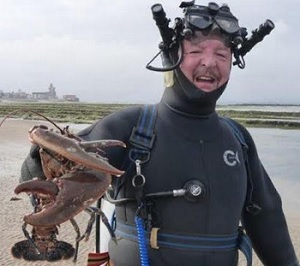
Dead crabs probe: Tees marine expert ‘99.9% sure dredging unearthing historical toxins to blame
A Teesside marine expert who has been following the probe into why piles of dead crustaceans washed up on Teesside’s beaches remains ‘99.9% sure’ dredging is to blame. David McCreadie, a retired senior lecturer in marine biology and oceanography, says he spotted a vessel dredging off Teesmouth at the end of September and then started to find dead lobsters and crabs on the South Gare near Redcar. The investigating authorities have already ruled out dredging,,, >click to read< 08:19
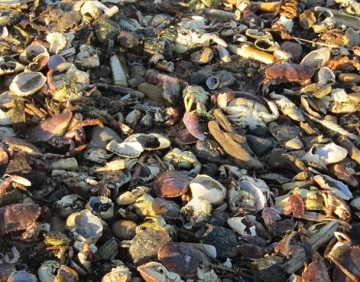
Fishermen scared for livelihoods as sea creatures disappear from Yorkshire coast
Fishermen across Yorkshire fear they could be forced out of business after masses of dead sea creatures have been washed up on the shoreline. Robert Harrison, from Filey in North Yorkshire, said he is scared for their livelihoods amid claims there “isn’t a living thing” within three miles of the coast. Dead crabs and rotting lobsters were littered across the coastline between Marske and Saltburn in October but now fishermen in Filey are experiencing a similar issue. >click to read here< and >here< 07:40
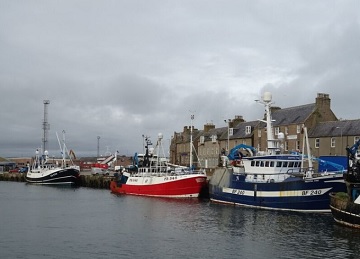
A trilateral agreement: More haddock can be caught after fishing deal with EU and Norway
The UK has made a deal with Norway and the European Union on how to divide up fish stocks in the North Sea next year. While fishing groups have welcomed the agreement, catch-sector bosses say it does nothing to resolve issues around access to cod in Norwegian waters after talks in the spring between London and Oslo collapsed. Ministers say they “remain optimistic” a deal with Norway and the Faroe Islands for 2022 can be struck before the end of the year. >click to read< 08:39
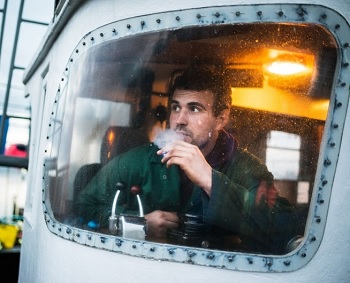
Brexit, an “ocean of possibilities”? British fishermen mixed
A heavy weather warning was announced this weekend in the North Sea. Rain and wind are already sweeping Peterhead and its pink granite dwellings. Located in the east of Scotland, the UK’s largest fishing port in terms of fish caught sees its boats returning for shelter. Except Peter Bruce, who will stay at sea until the last moment. ” We use so much gasoline to reach the whitefish fishing grounds that it is not financially worthwhile to come back for six to eight days.”,,, While Peter Bruce usually fills his holds with 50 tonnes of fish, he sometimes has to make do with 35 tonnes. Particularly since the 1is January. >click to read< 14:53

































